 |
||
|
HOME
|
US Navy -
ships
|
US Navy - air
units
|
USMC - air
units
|
International
Navies
|
Weapon Systems
|
Special Reports |
||
|
US Navy - Guided Missile Destroyer DDG 108 - USS Wayne E. Meyer |
||
|
||
| 07/24 | ||
|
Type, class:
Guided Missile Destroyer - DDG; Arleigh Burke class, Flight IIA Builder: General Dynamics Bath Iron Works, Bath, Maine, USA STATUS: Awarded: September 13, 2002 Laid down: May 17, 2007 Launched: October 19, 2008 Commissioned: October 10, 2009 IN SERVICE Homeport: Joint Base Pearl Harbor-Hickam, Hawaii Namesake: Rear Admiral Wayne E. Meyer (1926-2009) Ship's Motto: ONE POWERFUL LEGACY Technical Data: see: INFO > Arleigh Burke class Guided Missile Destroyer - DDG |
||
| images | ||
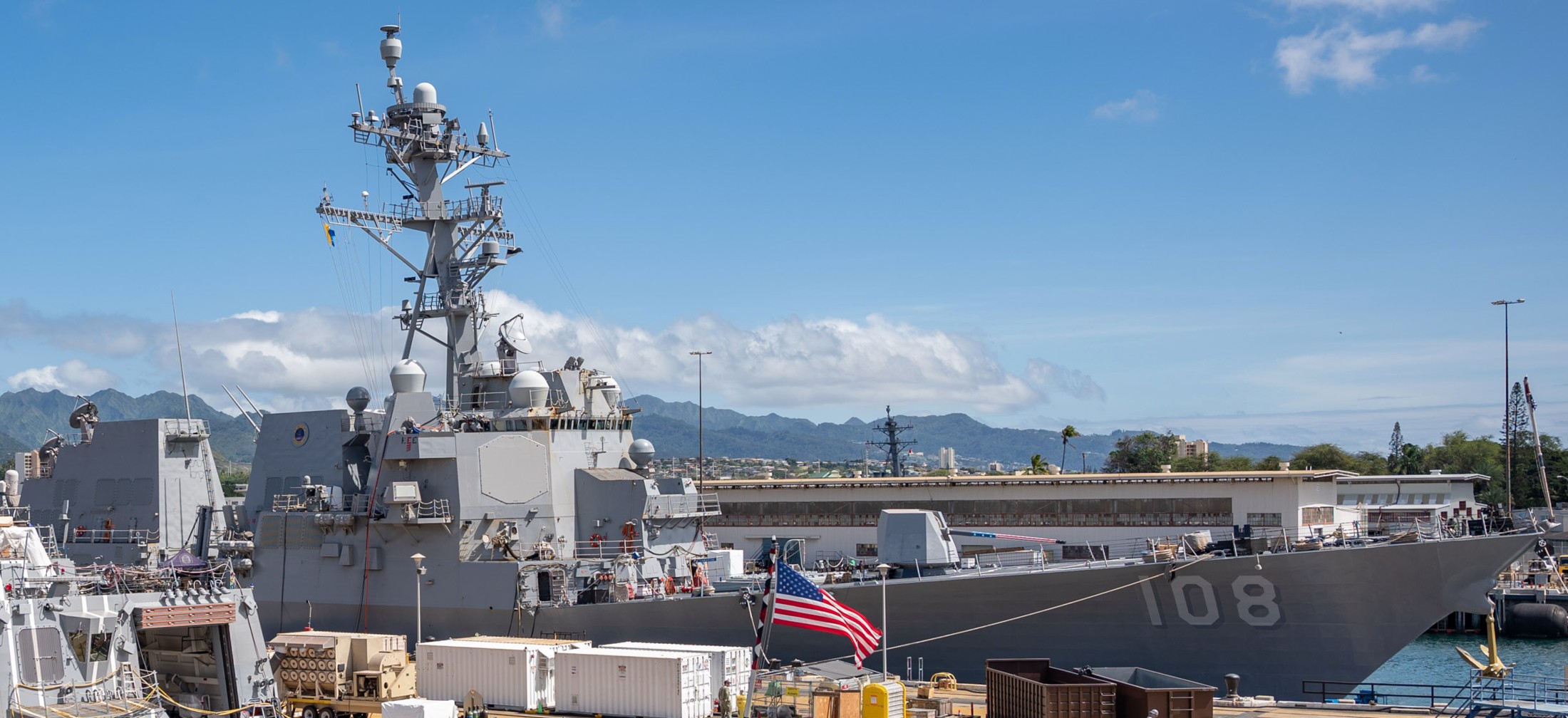 Pearl Harbor Naval Shipyard, Hawaii after completing a Selected Restricted Maintenance Availability (SRA) - February 2024 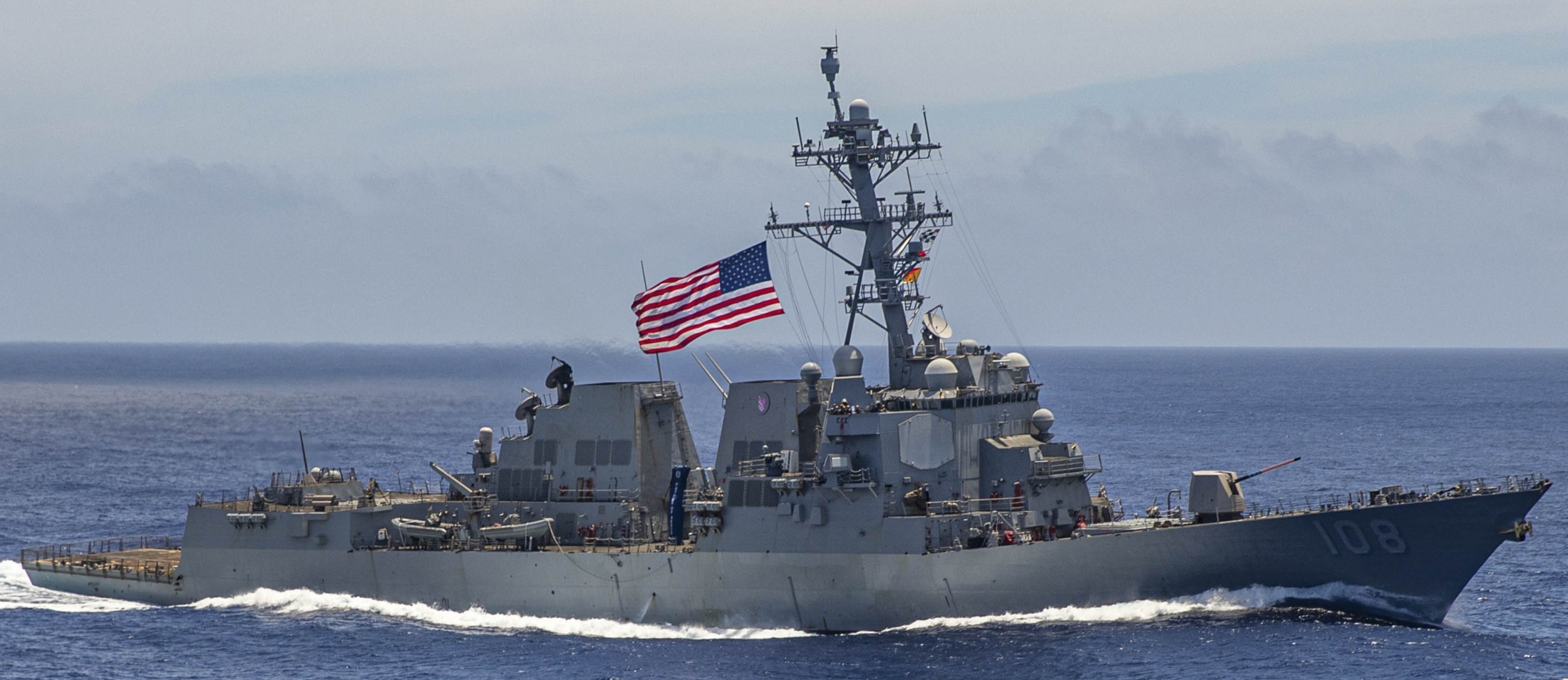 Pacific Ocean - June 2023 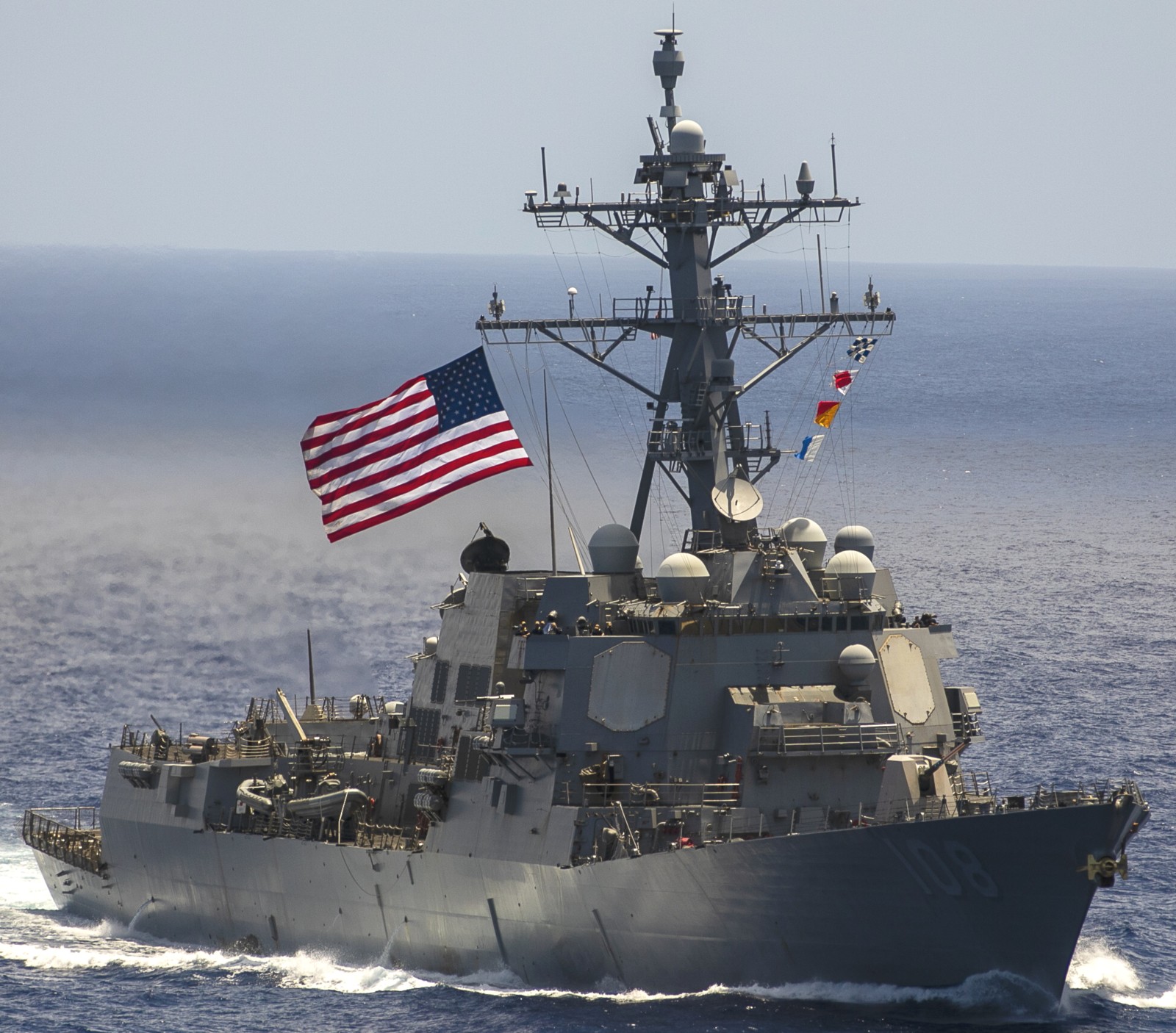 Pacific Ocean - June 2023 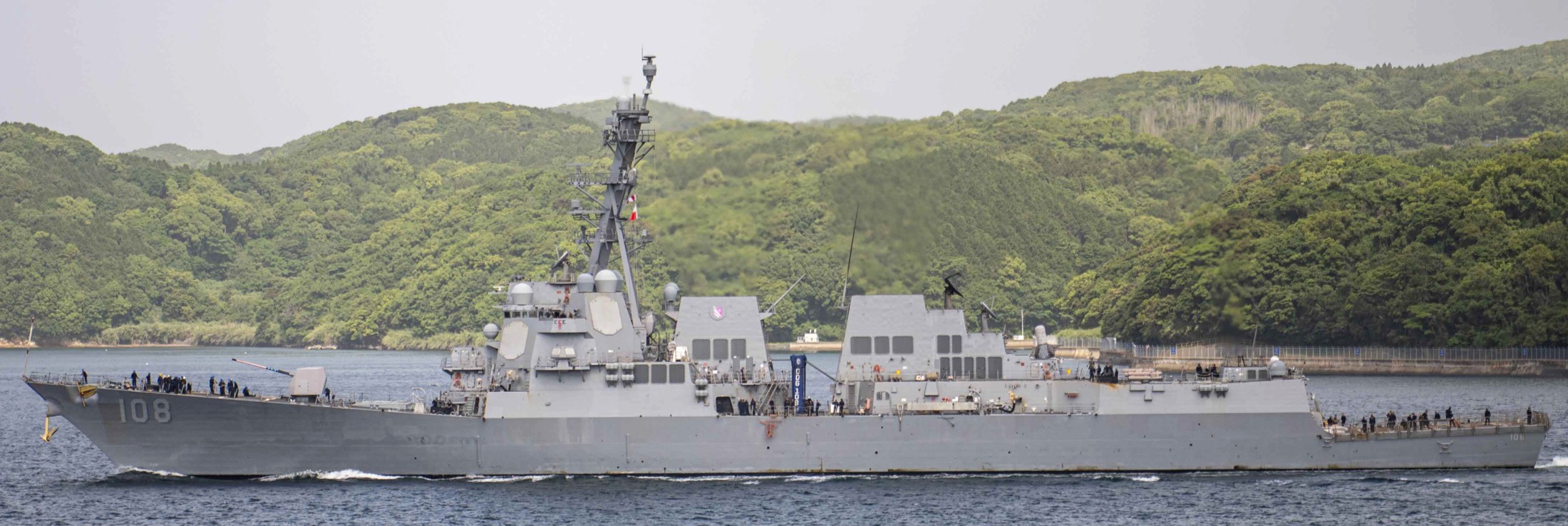 off Japan - May 2023  East China Sea - April 2023 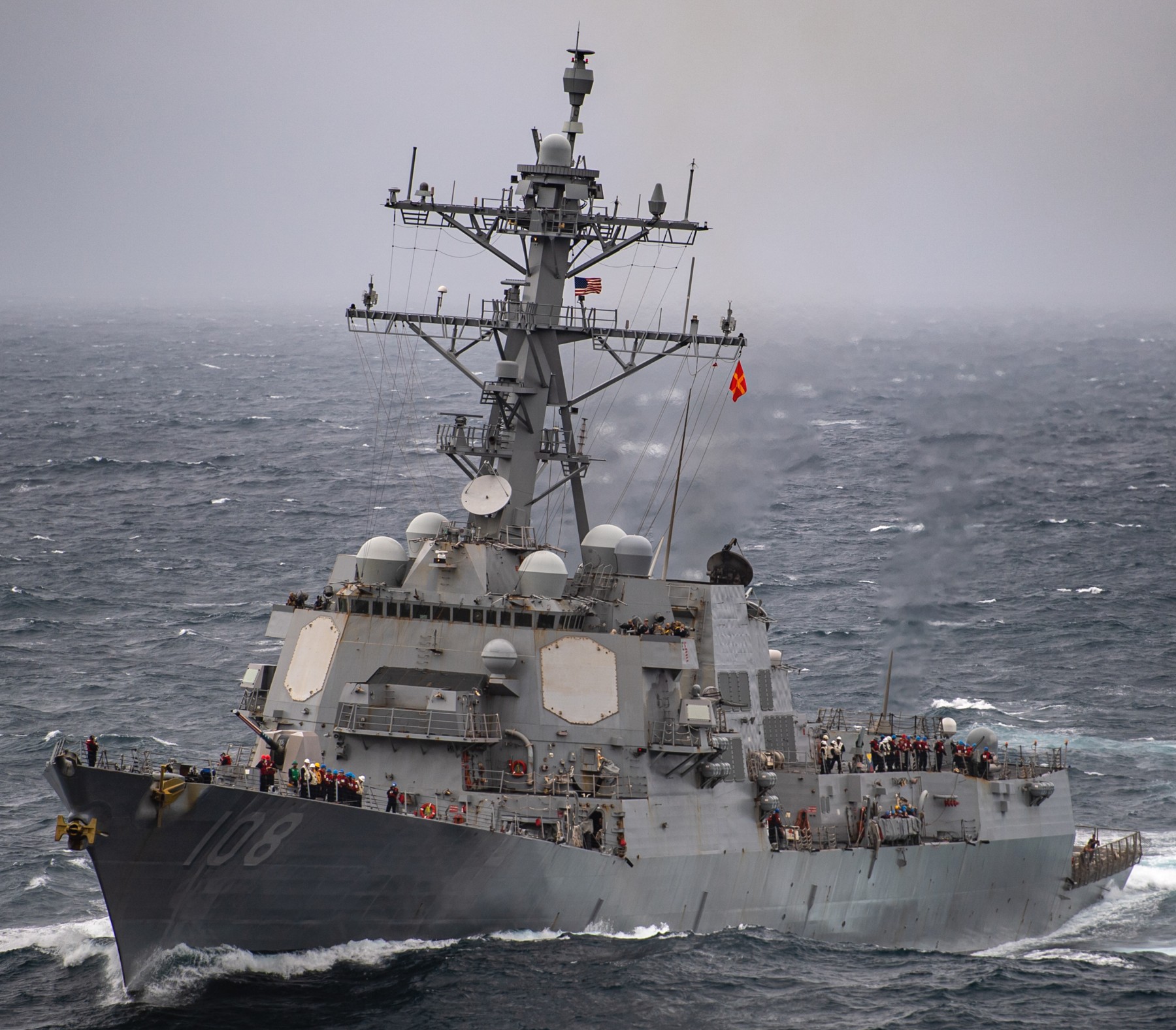 South China Sea - January 2023  Pacific Ocean - June 2022  Pacific Ocean - June 2022  Pacific Ocean - June 2022  Standard Missile SM-2 fire exercise - Pacific Ocean - June 2022 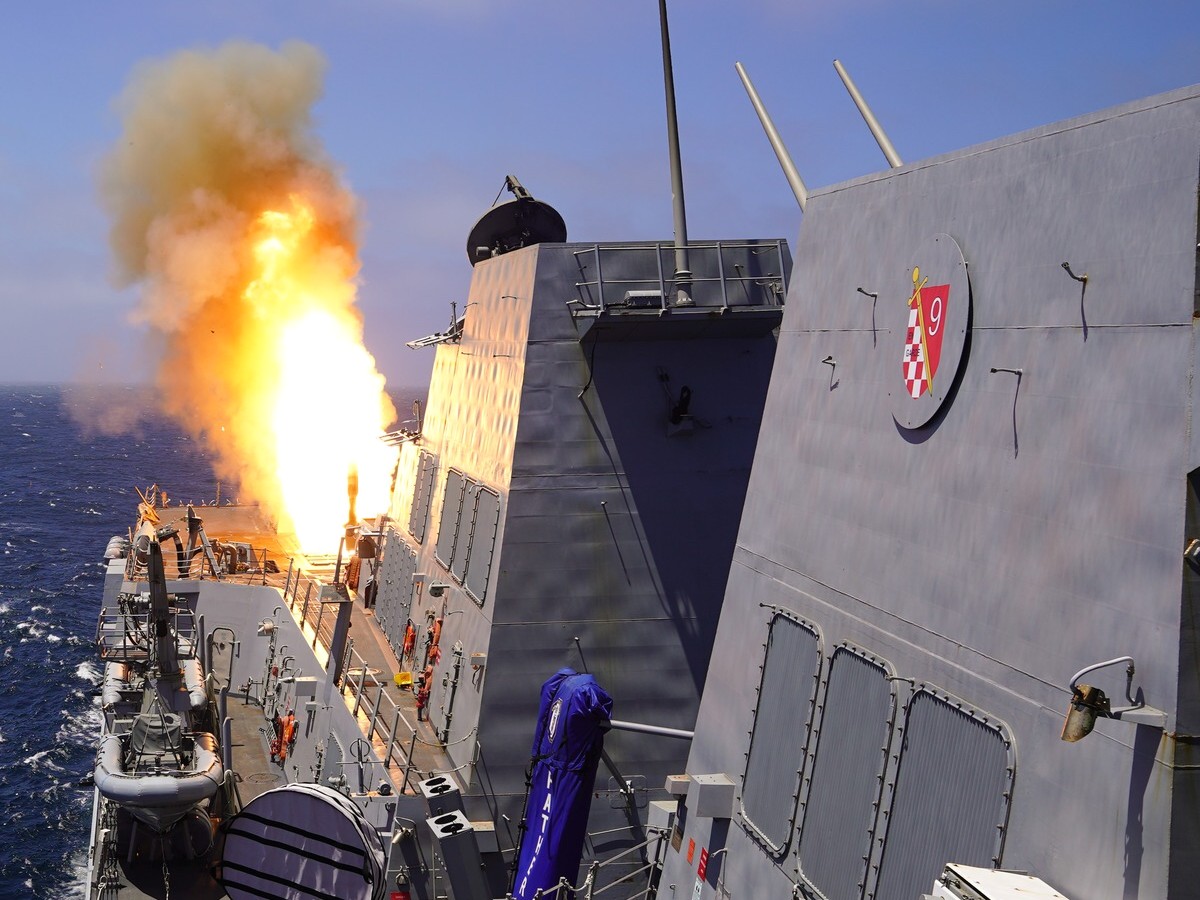 Standard Missile SM-2 fire exercise - Pacific Ocean - June 2022  arriving at Naval Surface Warfare Center, Port Hueneme, California - October 2021 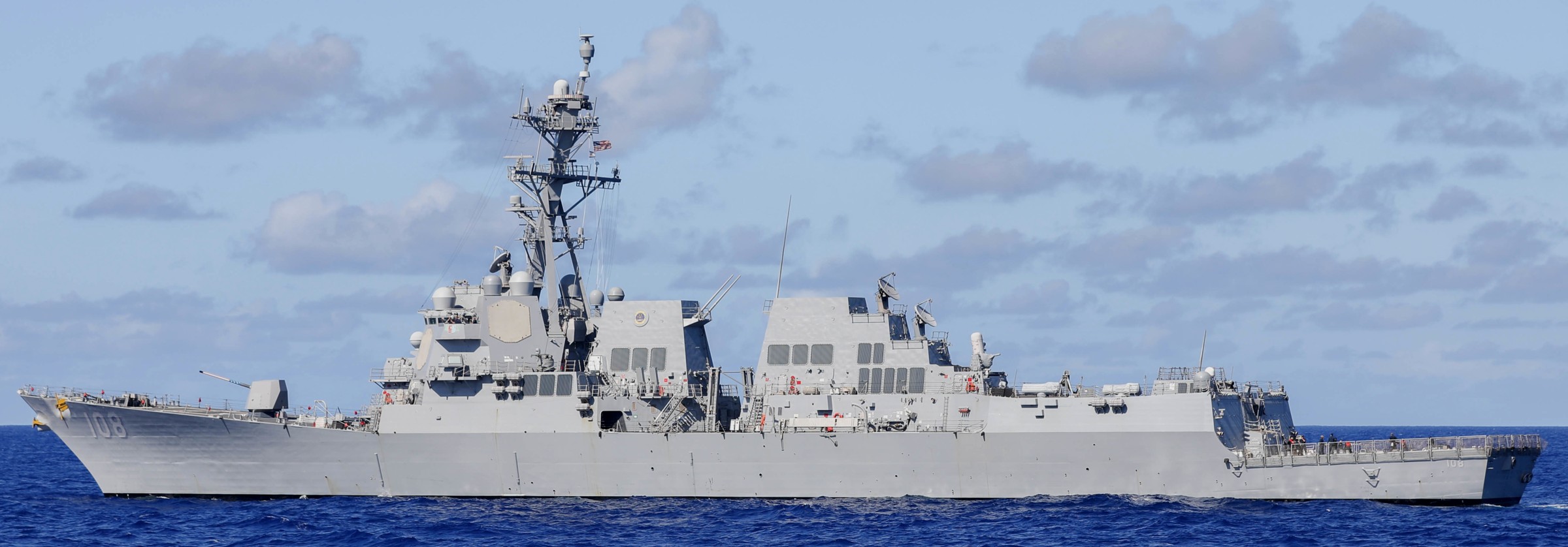 Pacific Ocean - June 2021 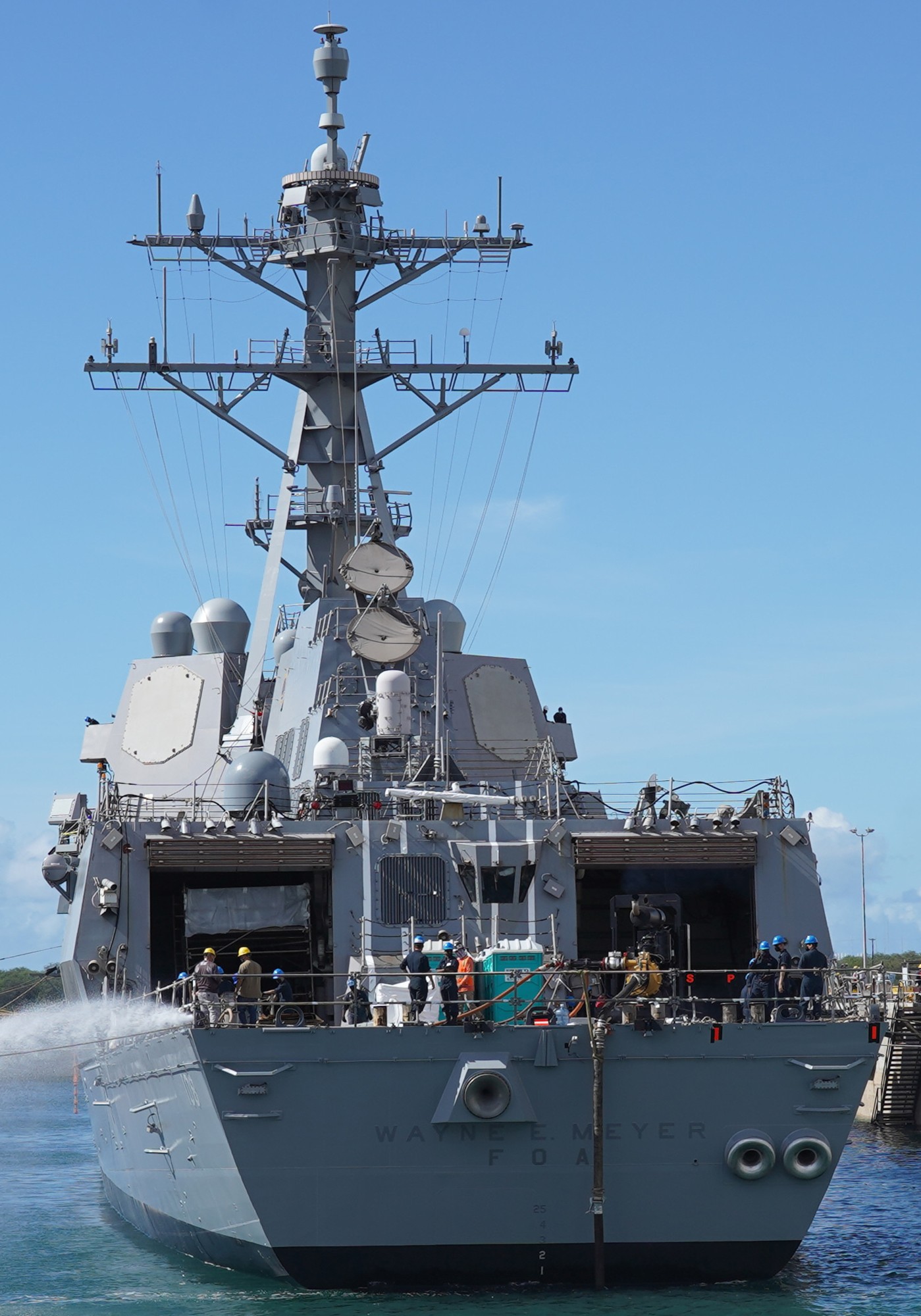 undocking at Pearl Harbor Naval Shipyard and Intermediate Maintenance Facility, Hawaii after an 8-month Dry Docking Selected Restricted Availability (DSRA) - November 10, 2020  undocking at Pearl Harbor Naval Shipyard and Intermediate Maintenance Facility, Hawaii after an 8-month Dry Docking Selected Restricted Availability (DSRA) - November 10, 2020  undocking at Pearl Harbor Naval Shipyard and Intermediate Maintenance Facility, Hawaii after an 8-month Dry Docking Selected Restricted Availability (DSRA) - November 10, 2020  returning to Joint Base Pearl Harbor-Hickam, Hawaii - December 23, 2019  returning to Joint Base Pearl Harbor-Hickam, Hawaii - December 23, 2019 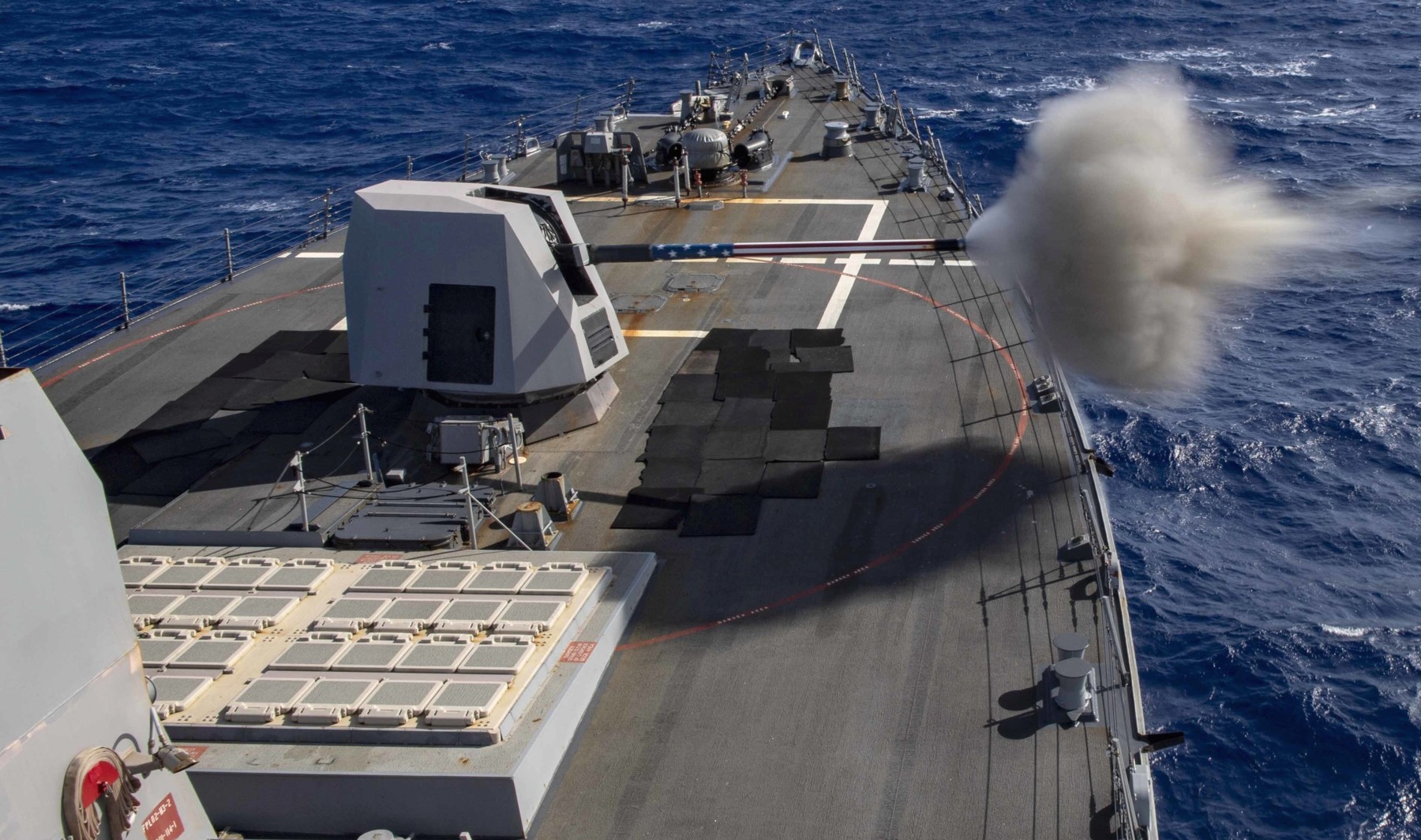 Mk.45 Mod.4 gun fire - Pacific Ocean - December 2019  combat information center (CIC) - South China Sea - November 2019 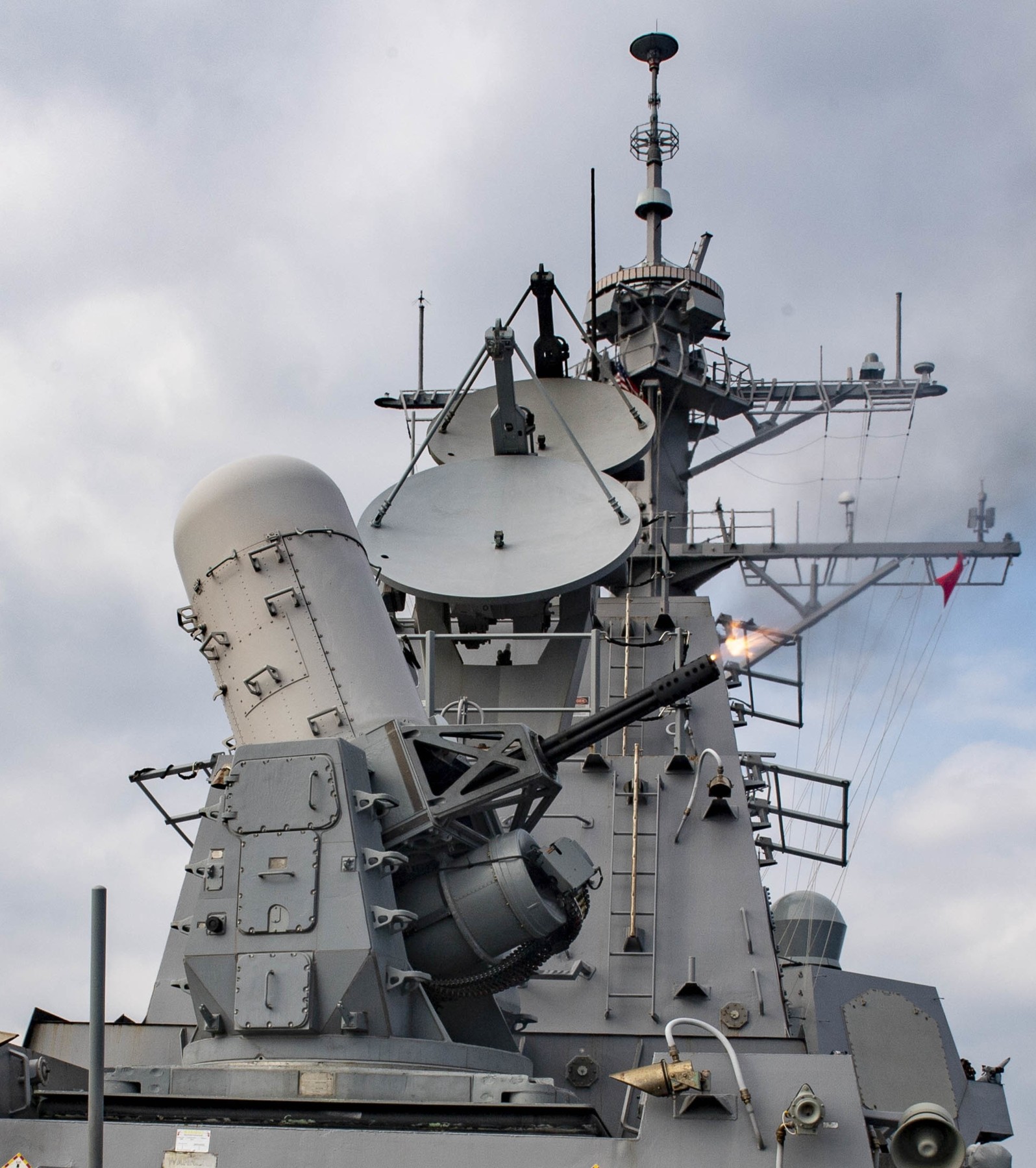 Mk.15 Phalanx CIWS fire exercise - East China Sea - October 2019 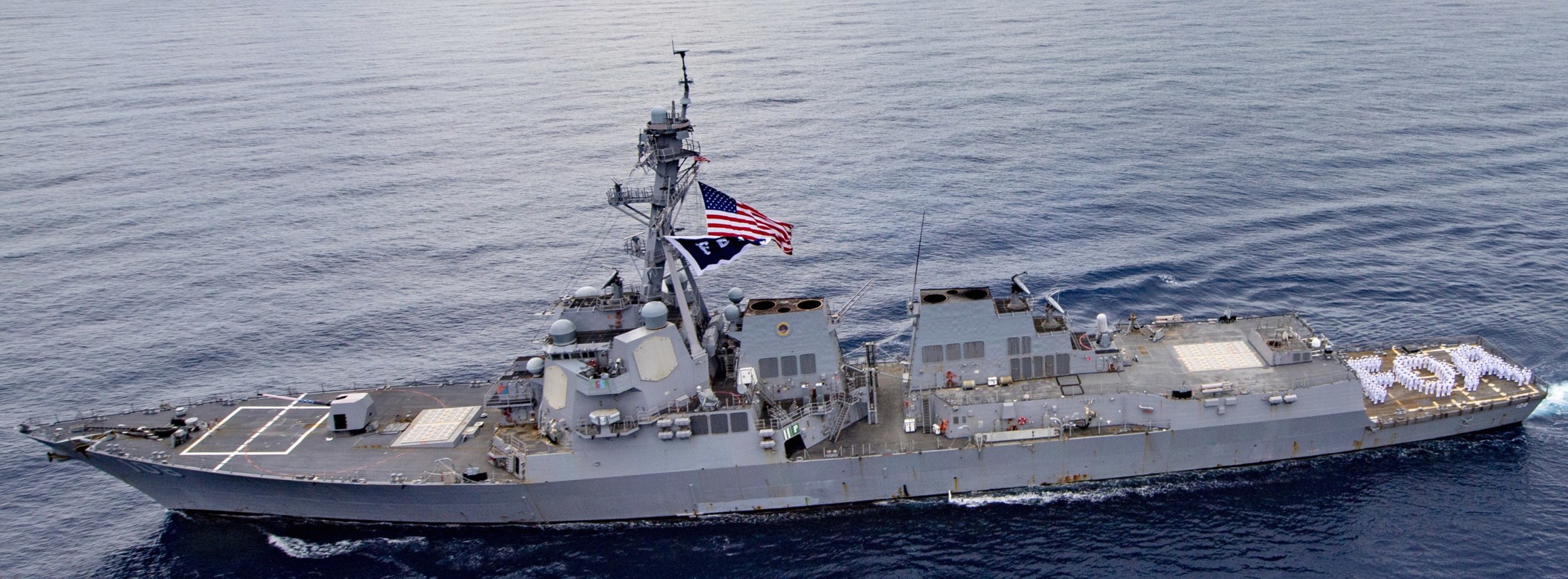 ship's 10th anniversary - Pacific Ocean - October 2019  ship's 10th anniversary (FOA means "father of AEGIS") - Pacific Ocean - October 2019  Pacific Ocean - August 2019  off Chile - December 2018 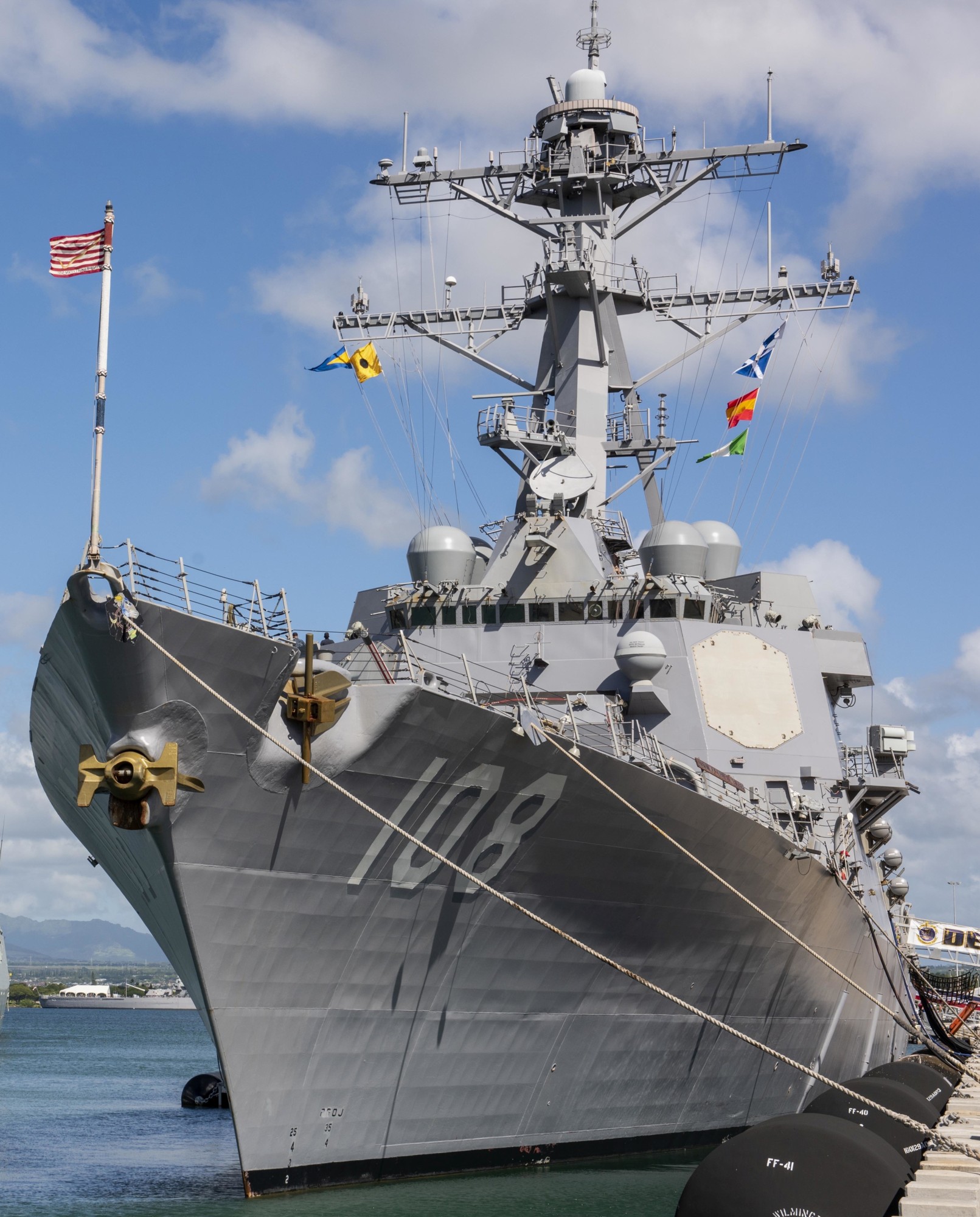 Joint Base Pearl Harbor-Hickam, Hawaii - September 2018  returning to Naval Base San Diego, California - April 12, 2018  Apra Harbor, Guam - February 2018  Pacific Ocean - January 2018  Pacific Ocean - January 2018  departing Naval Base San Diego, California - January 5, 2018  departing Naval Base San Diego, California - January 5, 2018  Pacific Ocean - November 2017  returning to Naval Base San Diego, California - June 23, 2017  returning to Naval Base San Diego, California - June 23, 2017  Pacific Ocean - June 2017  Joint Base Pearl Harbor-Hickam, Hawaii - June 2017  Sea of Japan - June 2017  Pacific Ocean - May 2017  Pacific Ocean - May 2017 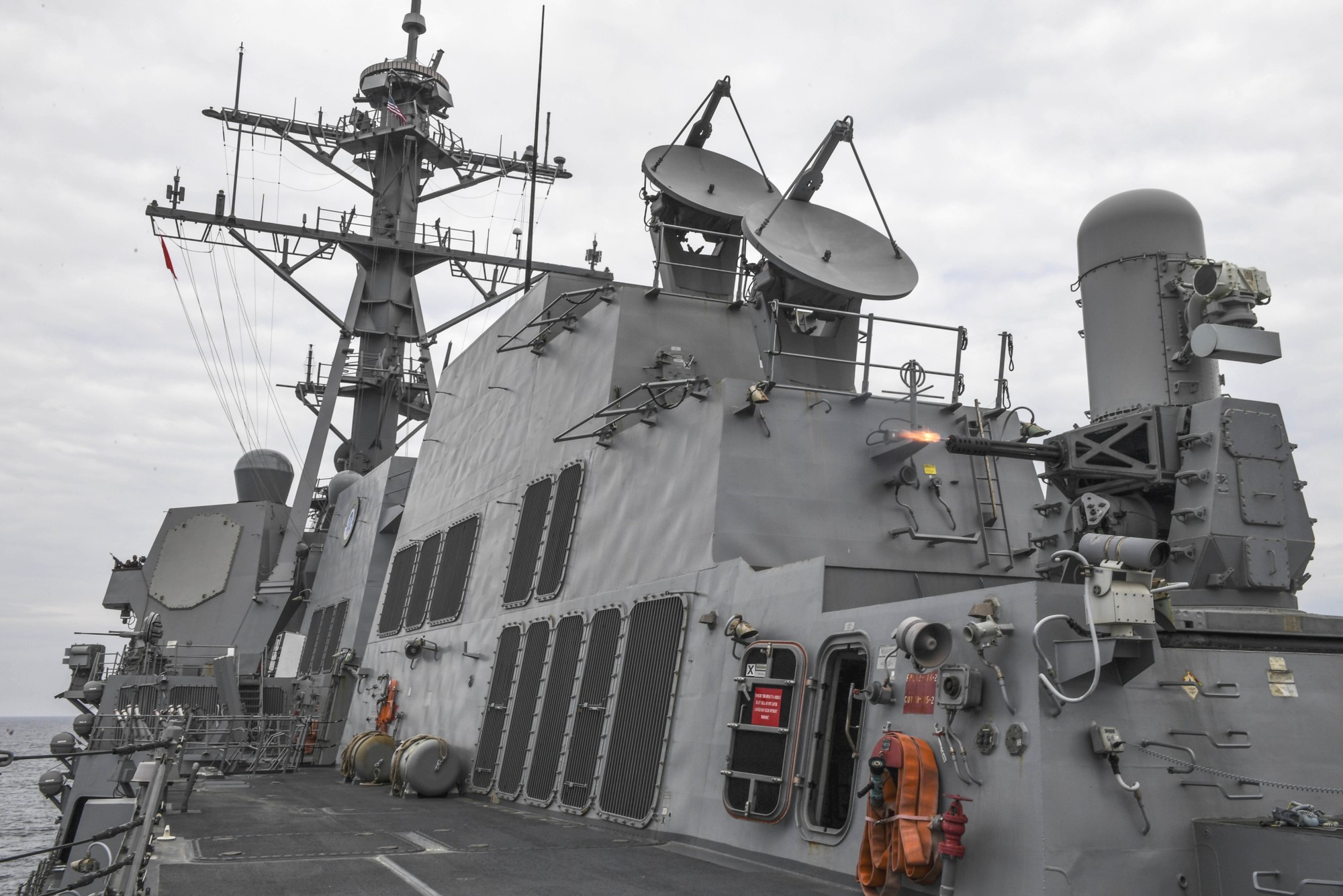 Mk.15 Phalanx CIWS fire - Pacific Ocean - May 2017  Mk.45 Mod.4 gun fire - Pacific Ocean - May 2017  Pacific Ocean - April 2017  South China Sea - April 2017  South China Sea - April 2017 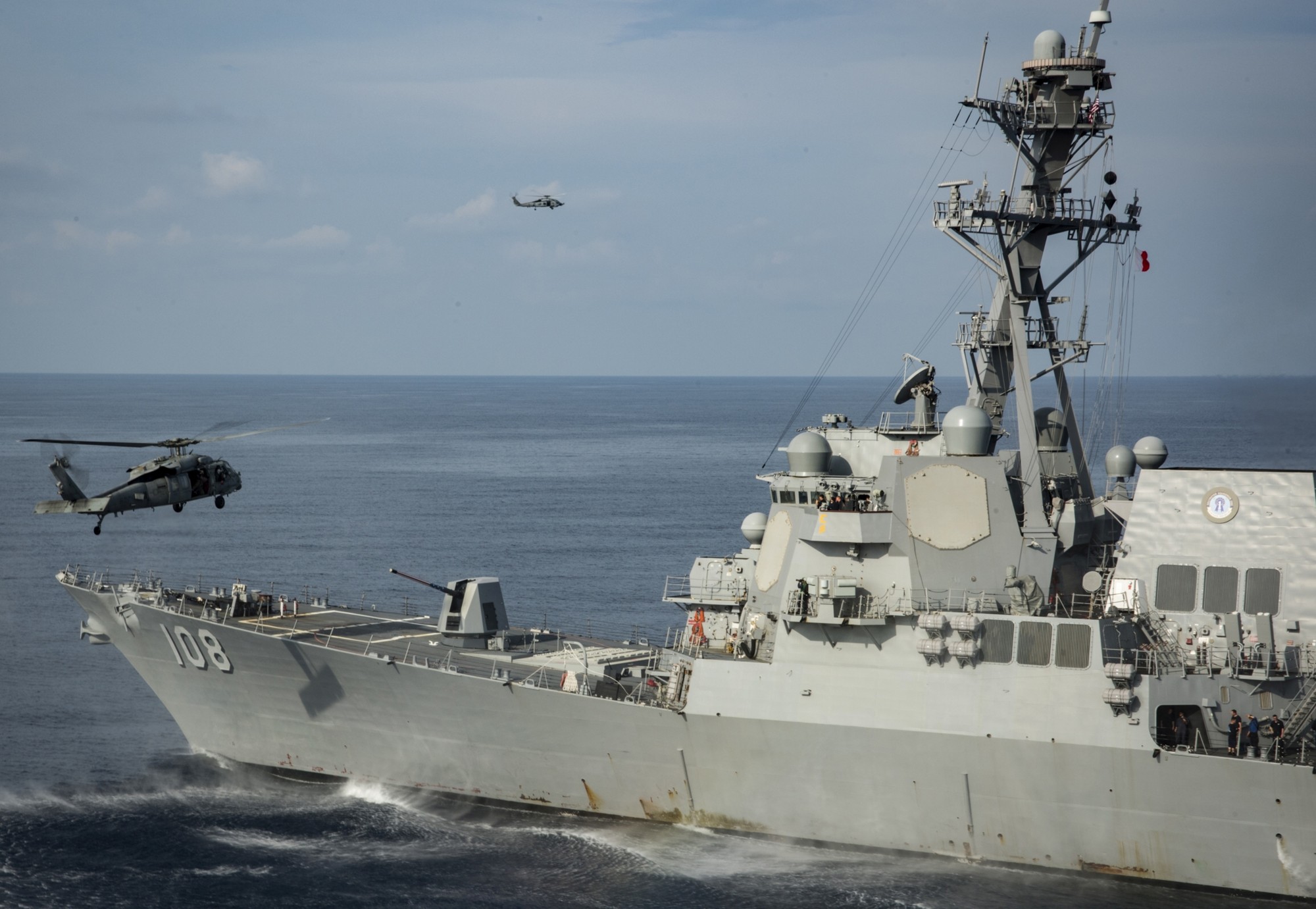 South China Sea - April 2017  South China Sea - April 2017  Philippine Sea - March 2017 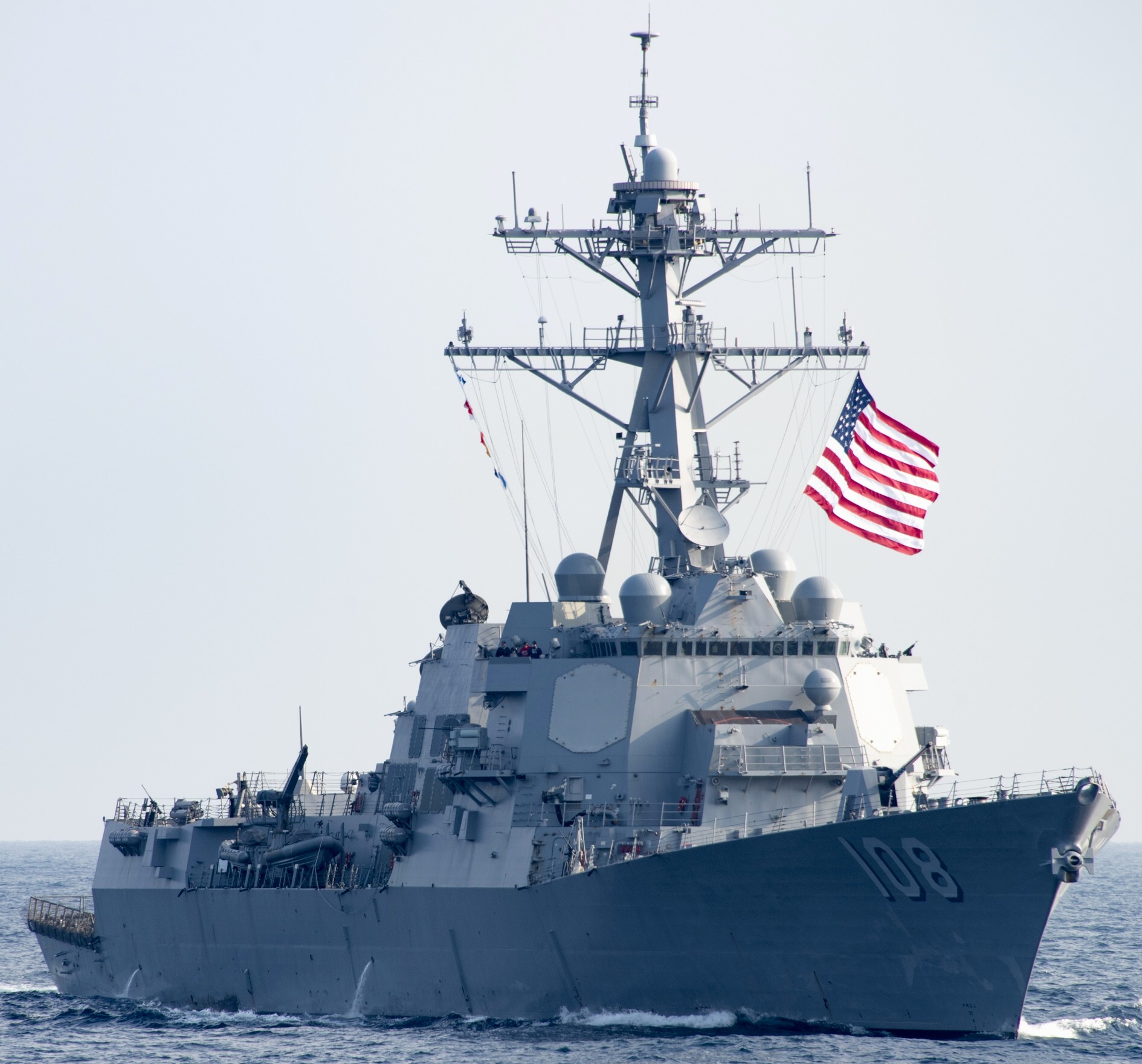 off Korea - March 2017  Busan, Republic of Korea - March 2017 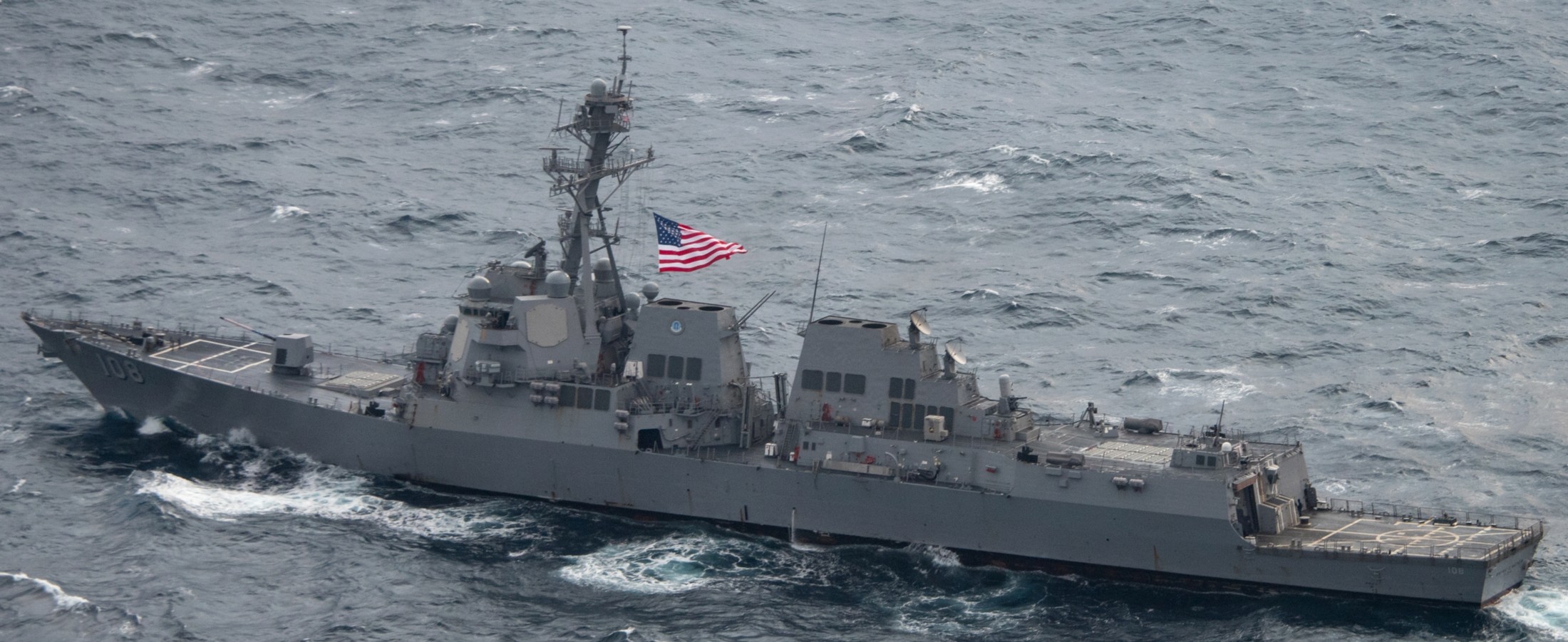 East China Sea - March 2017  East China Sea - March 2017  East China Sea - March 2017  East China Sea - March 2017  South China Sea - March 2017  South China Sea - March 2017  Pacific Ocean - January 2017  departing San Diego, California - January 2017  departing San Pedro, California, after Los Angeles Fleet Week - September 2016  arriving in the port of Los Angeles, San Pedro, for LA Fleet Week - August 2016  arriving in the port of Los Angeles, San Pedro, for LA Fleet Week - August 2016  arriving in the port of Los Angeles, San Pedro, for LA Fleet Week - August 2016  arriving in the port of Los Angeles, San Pedro, for LA Fleet Week - August 2016  Pacific Ocean - August 2016  San Diego, California - December 2015  San Diego, California - November 2014 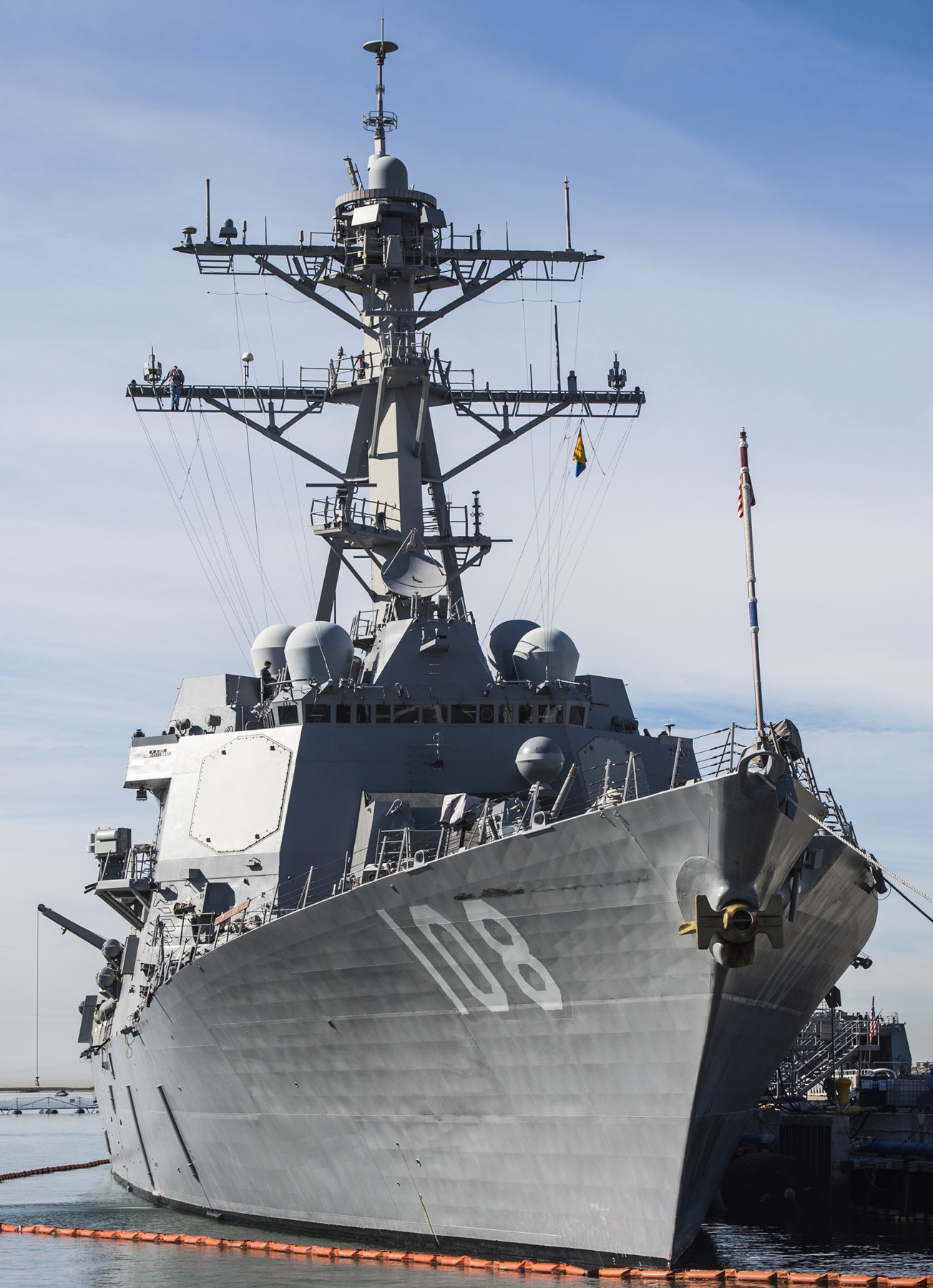 San Diego, California - November 2014  San Diego, California - October 2014 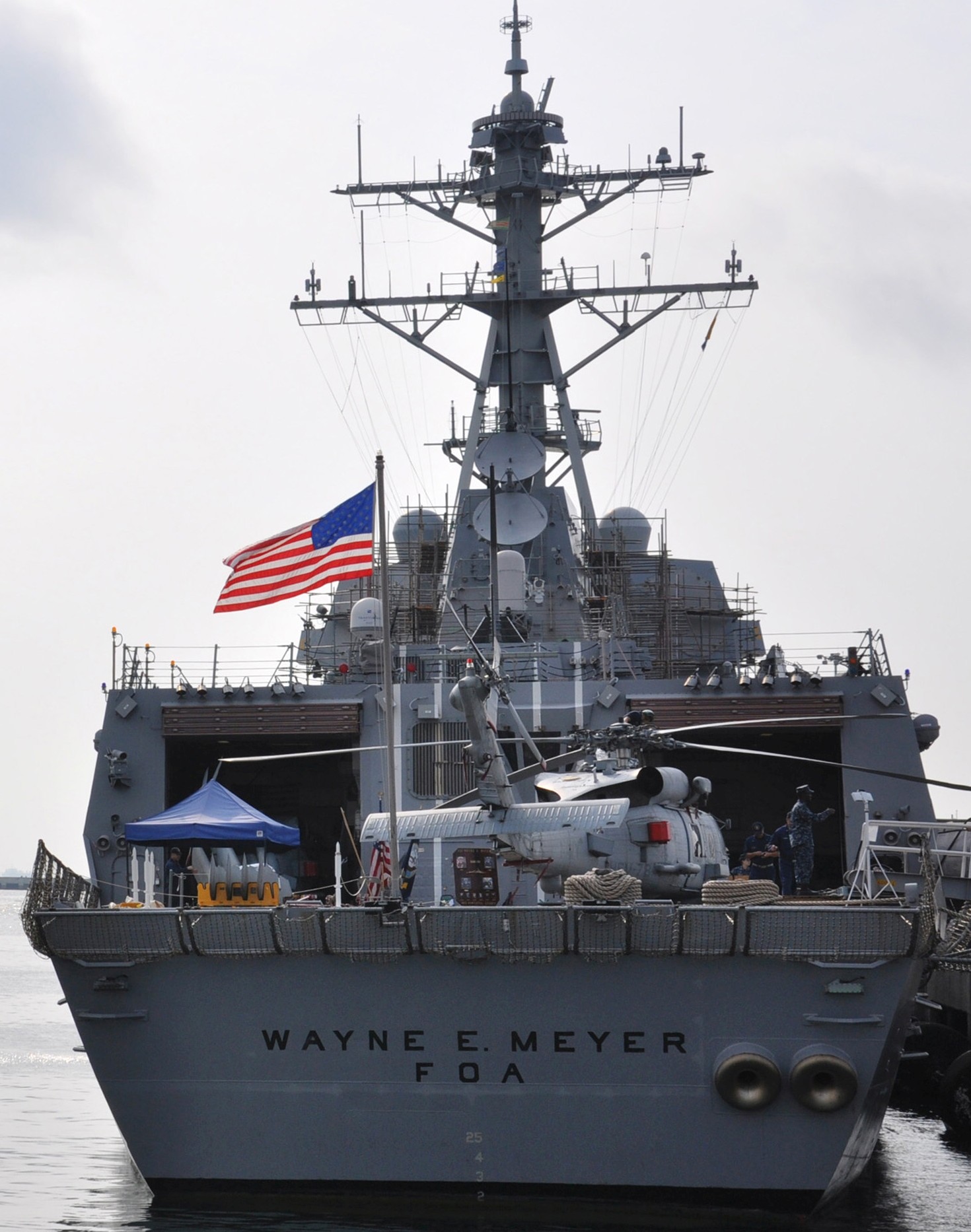 Changi Naval Base, Singapore - July 2014  Changi Naval Base, Singapore - July 2014 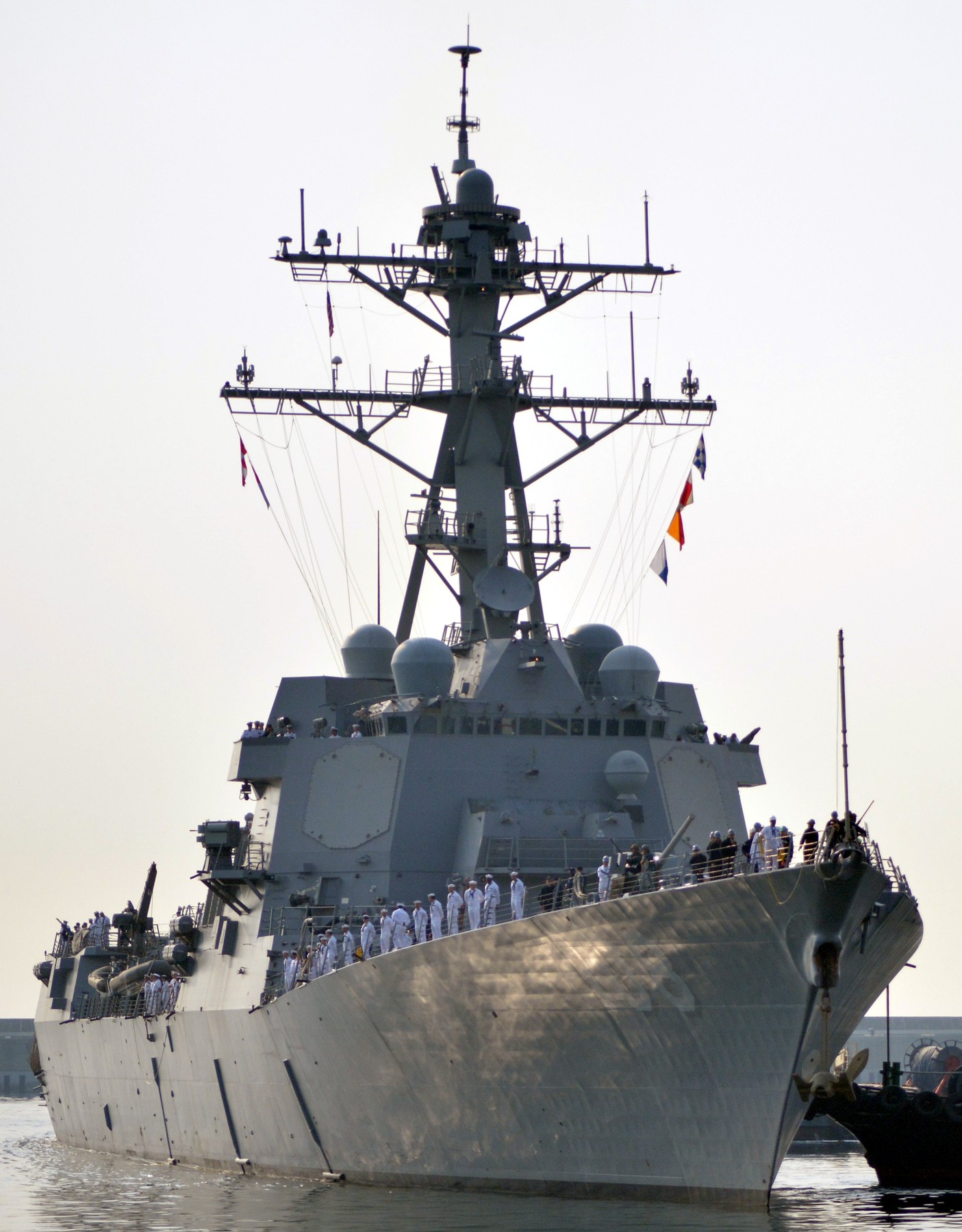 Busan, Republic of Korea - April 2014  Busan, Republic of Korea - April 2014 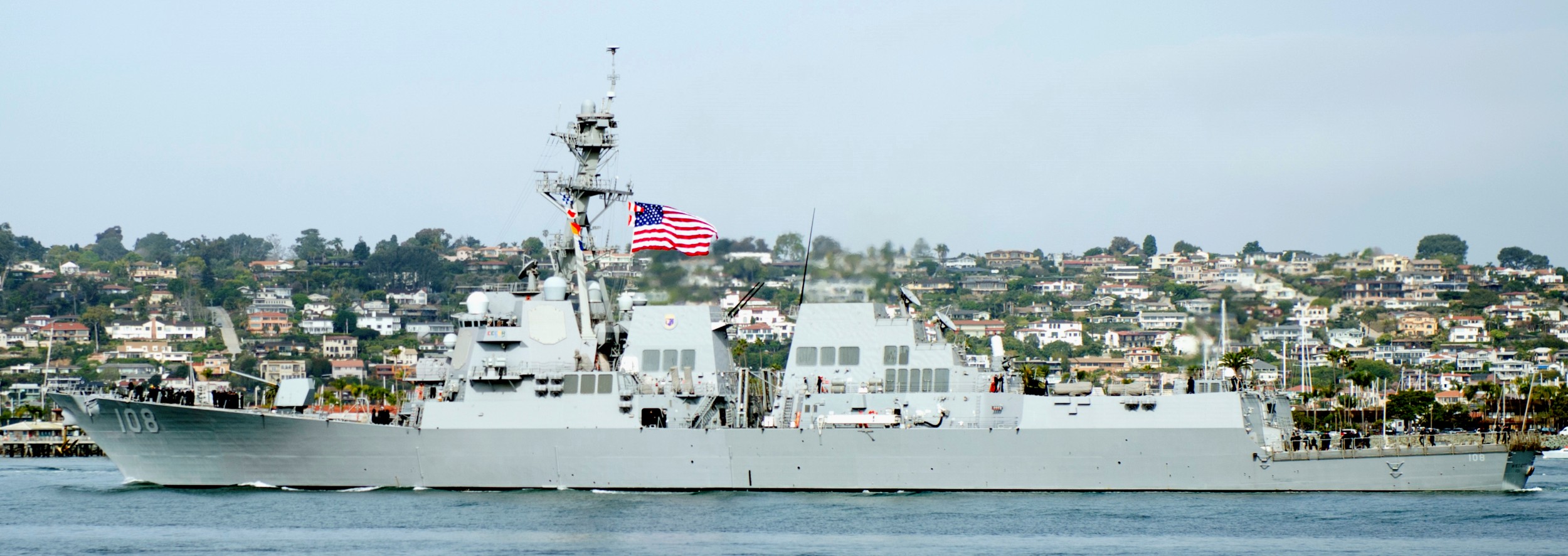 San Diego, California - March 2014  central control station - May 2013  San Diego, California - August 2012 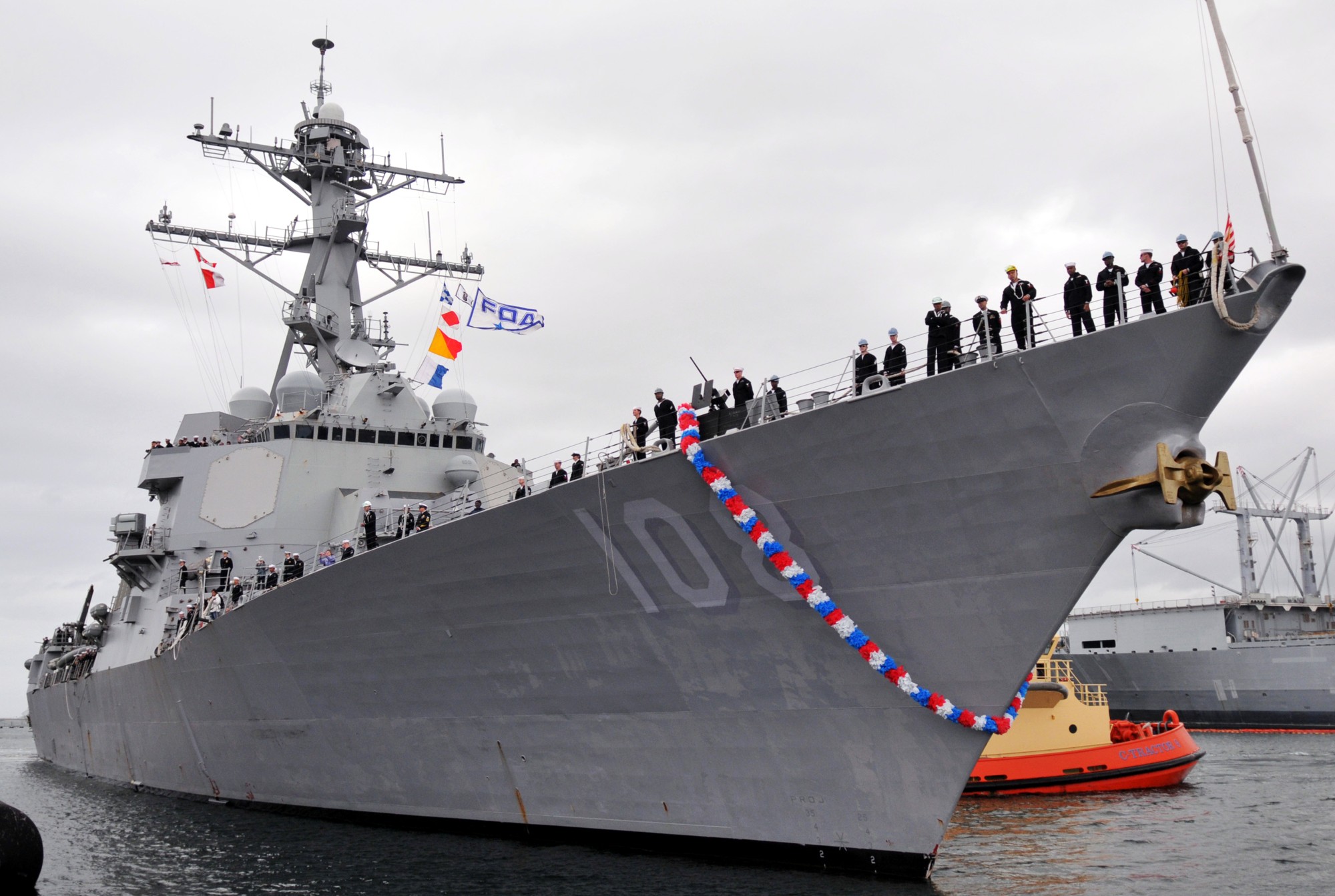 San Diego, California - February 2012  returning to San Diego, California - February 2012  Pacific Ocean - February 2012  Mk.32 torpedo tubes - November 2011  South China Sea - October 2011  arriving in San Diego, California - February 2011 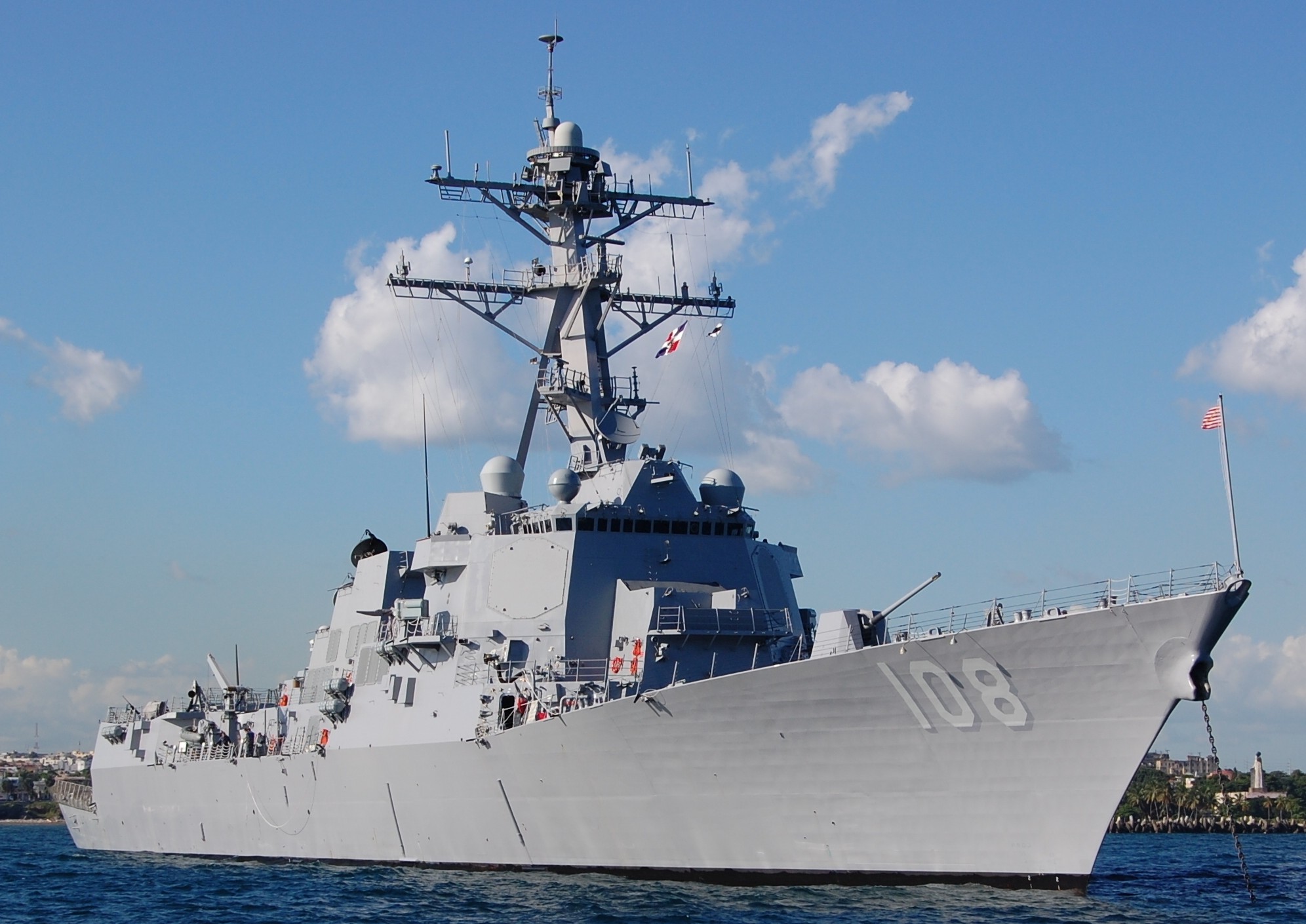 off Santo Domingo, Dominican Republic - November 2009  commissioning ceremony - Philadelphia, Pennsylvania - October 10, 2009  commissioning ceremony - Philadelphia, Pennsylvania - October 10, 2009  commissioning ceremony - Philadelphia, Pennsylvania - October 10, 2009  commissioning ceremony - Philadelphia, Pennsylvania - October 10, 2009 |
||
|
USS Wayne E. Meyer (DDG 108): USS Wayne E. Meyer (DDG 108) was laid down on 18 May 2007, christened in a ceremony at Bath Iron Works on October 18, 2008 and commissioned on October 10 2009 during a ceremony at Penn's Landing, Philadelphia. USS Wayne E. Meyer arrived at her homeport in San Diego, CA on 4 December 2009. In July 2011 USS Wayne E. Meyer departed Naval Base San Diego for her maiden deployment, as part of the USS John C. Stennis (CVN 74) CSG. In October USS Wayne E. Meyer attached to USS George Washington (CVN 73) CSG. In February 2012 USS Wayne E. Meyer returned to homeport after her seven-month deployment in the 5th and 7th Fleet Areas of Responsibility. In June 2012, the guided-missile destroyer returned to San Diego after conducting sea trials, completing a 10-week Selected Restricted Availability (SRA). Wayne E. Meyer participated in the 16th annual L.A. Navy Days in August 2012. Upon returning to homeport, Wayne E. Meyer entered the Basic Phase, undertaking vital preparations to prepare the ship for future tasking. After completing a successful Mid-Cycle Inspection in September 2013, Wayne E. Meyer began final preparations for deployment. In March 2014, Wayne E. Meyer departed San Diego for an independent deployment to the 7th Fleet Area of Responsibility, conducting various underway missions and making stops in French Polynesia, South Korea, Japan, Guam, Singapore, and Hong Kong. She returned to homeport in October 2014. |
||
|
Rear Admiral Wayne E. Meyer (April 21, 1926 - September 1,
2009): Rear Admiral Wayne E. Meyer (April 21, 1926 - September 1, 2009) is regarded as the "Father of Aegis" for his 13 years of service as the Aegis Weapon System Manager and later the founding project manager of the Aegis Shipbuilding Project Office. He retired from the United States Navy in 1985 as the Deputy Commander for Weapons and Combat Systems, Naval Sea Systems, Naval Sea Systems Command and Ordnance Officer of the Navy. Education: Meyer graduated from the University of Kansas in 1946 as a B.S. in Electrical Engineering. He also held a B.S. in Electrical Engineering and a M.S. in Astronautics and Aeronautics from the Massachusetts Institute of Technology, and a B.S. in Electrical Engineering from the Naval Postgraduate School. Early childhood: Wayne E. Meyer was born to Eugene and Nettie Meyer (now deceased) in Brunswick, Missouri, on 21 April 1926. His first four years of school were in Warden District School (eight grades in one room with a wood stove) under Helen Duncan. His father and family were livestock and grain farmers, plowing the land referred to by locals as the "gumbo". Meyer's father Eugene was displaced in the drought and the Great Depression and lost everything in 1935. He and his family of four children moved eleven miles into clay country five miles North of Brunswick. Wayne and siblings were enrolled in St. Boniface Catholic School, a 2-room schoolhouse. Sister Mary Joann was his teacher for the next four years with grades five through eight combined in one room. Enrolled in the 140-pupil Brunswick High School in 1939, his primary teacher (and principal) was Miss Edith Marston. Under her tutelage, he and three other boys had been prepared by her to take a three day Armed Services competitive exam in January 1943, which all passed. In April they were called to Kansas City to examine their physical fitness for enlistment in a competitive college program created by President Roosevelt, called the V-12 in the Navy. Meyer passed the exam. Early career: He enlisted in the U.S. Naval Reserve on 12 May 1943 after his parents signed the required papers, as he was only 17 at the time. Meyer graduated from high school on 23 May as president of his class and valedictorian. In June he was called to active duty as Seaman Apprentice, USNR, reporting to the University of Kansas on 1 July. Meyer was enrolled in the University's Engineering School as his primary duty. He completed eight semesters towards his degree on 1 February 1946. Later that month the Navy ordered the remainder of that Naval Unit (only 35 out of approximately 500 originally) to be commissioned as Ensign USNR, and the University awarded him a B.S. in Electrical Engineering (with Communications and Pre-Radar option). After 11 months at M.I.T. in Radar/Sonar training (and an additional B.S. in Electrical Engineering with an Electronics option), he was ordered to radar picket destroyer Goodrich. He qualified for Officer of the Deck underway at the age of 20. Meyer subsequently served as part of the Occupation Forces in the Mediterranean along with service in the Greek Civil War. He was part of the force supporting the creation of Israel in 1948. He was also accepted for transfer to the regular Navy that year. Over the next two decades he served in the occupation forces in Japanese and in Chinese waters. His ship, the light gun cruiser Springfield, was in the mouth of the Huangpu River when Chiang Kai Shek's Nationalist forces fell to Mao Zedong's Red Army in March 1949. Probably the last U.S. warship in China, his ship sailed for home only to head to Hunters Point, San Francisco shipyard for decommissioning. From 1951 through 1955, he attended the Joint Guided Missile School, Fort Bliss, Texas, the Naval Line School, Monterey, California, and served as instructor at the Special (atomic) Weapons School, Norfolk, Virginia. He returned to sea as Executive Officer on USS Strickland followed by service on the Staff, Commander, Destroyer Force, Atlantic. Later, he returned to Monterey to study Ordnance Engineering, followed again by M.I.T for 12 months. Here he was awarded one of the early master's degrees in Aeronautics and Astronautics. Then he was ordered to the guided-missile cruiser Galveston as Fire Control officer and subsequently Gunnery Officer for her conversion as the first TALOS Cruiser. He has fired, in exercises and tests, more TALOS missiles than any other person. Later career: In 1963, Navy Secretary Fred Korth chose then-Commander Meyer to serve in the Navy Task Force for Surface Guided Missile Systems, commanded by RADM Eli T. Reich. His work at the Terrier Desk led to his appointment to lead the engineering effort to shift the 30 Terrier-armed ships from analog to high-speed digital systems. Turning down a destroyer command to continue this prelude to advanced weapons system design, he was appointed an Ordnance Engineering Duty Officer the same year he was selected Captain. He was 40 years old. In 1967, he reported as Director of Engineering at the Naval Ship Missile Systems Engineering Station, Port Hueneme, California (now known as Naval Surface Warfare Center, Port Hueneme Division or NSWC PHD). In 1970, he was recalled to Washington and reported to the Naval Ordnance Systems Command as Manager, Aegis Weapon System. The Aegis project was begun by the Navy as the Advanced Surface Missile System (ASMS). Following the cancellation of the Typhon project, the Navy began work on ASMS to arm the fleet against the advanced Soviet air threats expected in the 1960s and 1970s. After receiving seven concept proposals from arms makers, the Navy Secretary recalled retired Rear Adm. Frederic S. Withington (a former Chief of the Bureau of Ordnance) to active duty to recommend one for development. Withington delivered a report to the Secretary on May 15, 1965, recommending a phased array S-Band radar to search and track air targets, six slaved X-band radars for illumination and fire control, a digital control system compatible with the Naval Tactical Data System, a standard missile that could be directed in flight, and a dual-rail launcher. The report also recommended choosing a prime contractor to develop the system and improving existing missiles. In 1969, RCA was awarded a contract to begin development. Meyer arrived in 1970, a leader experienced in system development, familiar with current fleet problems, and savvy enough to deal with the Navy and DoD hierarchy to see the project through to completion. He insisted upon rigorous system engineering discipline throughout the project, and spent considerable effort ensuring that all participants understood what the system was required to do, and what their role was. Key to specifying and measuring system performance was the development of the three functional cornerstones (Detect, Control, Engage) and the five operational cornerstones: - Reaction Time - Firepower - Electronic Countermeasure and Environmental Immunity - Continuous Availability - Area Coverage Meyer's philosophy of "Build a Little, Test a Little, Learn a Lot" drove the testing and milestones of the Aegis system. Having witnessed problems with existing missile systems related to a lack of testing, tests that incorporated too many objectives, and failed system integration efforts requiring massive "get well" programs, he drove the project to conduct numerous tests in development and in delivery of production gear prior to ship installation. Meyer was also named Project Manager (the final one) for Surface Missile Systems in 1972, and in July 1974 he was named the first Director of Surface Warfare, in the new Naval Sea Systems Command. He was selected for Rear Admiral in January 1975 at age 49. In July, he became the founding Project Manager, Aegis Shipbuilding, with project code PMS-400. The first Aegis-equipped ship, USS Ticonderoga, was not decided upon in a day. Throughout the project's development, the size and armament of the ship was the subject of vigorous debate within the Navy, the Office of the Secretary of Defense, and Congress. The proposed ships ranged from a 5,000-ton "austere" ship promoted by Admiral Zumwalt to a nuclear strike cruiser displacing three times as much. The type of ship, cruiser or destroyer was also a subject of debate. The Aegis system was eventually installed on a modified version of the Spruance-class hull, the first of which was designated as DDG-47, and later changed to CG-47. The ship was appropriated in 1978, and shortly after construction began at Ingalls Shipbuilding in Pascagoula, Mississippi. CG-47 was commissioned on 22 January 1983, and a short nine months later fired guns at Lebanon. Meyer and the project team were proud that the ship was ready to fight so shortly after commissioning. A second class of Aegis ship began with concept studies in 1978. The class was to replace the aging DDG-2 and DDG-37 class destroyers and handle the same air threats as the CG-47 class. The project responsibility originally lay outside of PMS 400, in another functional code in the Naval Sea Systems Command (NAVSEA 93). However, by May 1982, the project was put under Meyer's control in PMS 400, with a lead ship awarded 1985 to Bath Iron Works, Bath, Maine. Like the Ticonderoga, the ship was designed with an Aegis Combat System, modified for installation in the destroyer and less heavily armed. The ship was commissioned as USS Arleigh Burke on July 4, 1991. In September 1983, Meyer was reassigned as Deputy Commander, Weapons and Combat Systems, Naval Sea Systems Command. He retired from active duty in 1985. In 1985 the American Society of Naval Engineers presented him with the Society’s Harold E. Saunders Award for lifetime contributions to naval engineering. Since the commissioning of USS Ticonderoga, Meyer has attended every commissioning of an Aegis ship. This includes 27 cruisers and 49 destroyers at the time of this writing (the entire DDG-51 class appropriated is 62 ships, the last of which is projected to be commissioned in 2012). Recent history: Rear Admiral Meyer ran a consultancy with offices in Crystal City, Virginia. He chaired and served on numerous panels and committees chartered by various United States Department of Defense civil and military officials, and was especially involved with the Surface Navy and the Missile Defense Agency (formerly the Ballistic Missile Defense Organization and Strategic Defense Initiative Organization) in developing ballistic missile defense capability for the nation's Aegis fleet of cruisers and destroyers. He continued to live in Falls Church, VA with his wife Anna Mae, stepson Edward and two cats. His late wife Margaret was the sponsor, and his granddaughter Peggy was the Maid of Honor for the Aegis guided-missile cruiser Lake Erie. He has three adult children (Paula, James and Robert), 2 stepchildren (Anna and Edward) and four grandchildren. RADM Meyer is one of a handful of persons to have a ship named in his honor while still alive. The Chief of Naval Operations announced on 27 November 2006 that USS Wayne E. Meyer (DDG-108) is named in his honor. She will be the 85th Aegis ship to be constructed and wield the 100th Aegis system to be delivered to the Navy. She was christened on October 18, 2008 at Bath Iron Works in Maine. Christening speakers included Maine Senators Olympia Snowe & Susan Collins, Maine Congressmen Tom Allen and Michael Michaud, Maine Governor John Baldacci, Chief of Naval Operations Gary Roughead, Assistant Secretary of the Navy Sean Stackley, Bath Iron Works president Dugan Shipway, and - of course - Rear Admiral Meyer. The Aegis Shipbuilding project is scheduled to conclude with DDG-112, and is the longest continuous shipbuilding project in U.S. Navy history, with 27 cruisers and 62 destroyers authorized since 1978. Admiral Meyer died on 1 September 2009 and was laid to rest at Arlington National Cemetery on 17 September 2009. The ship named in his honor was commissioned on October 10, 2009 in Philadelphia, Pennsylvania. Awards and decorations: Rear Admiral Meyer's personal decorations and service medals include: Distinguished Service Medal Legion of Merit Meritorious Service Medal Navy Meritorious Unit Commendation Ribbon with Bronze Star China Service Medal American Campaign Medal World War II Victory Medal Navy Occupation Service Medal National Defense Medal with Bronze Star Armed Forces Expeditionary Medal Vietnam Service Medal Republic of Vietnam Gallantry Cross with Palm Unit Citation Republic of Vietnam Civil Actions Unit Citation American Society of Naval Engineers Gold Medal (1976) Old Crow Electronics Countermeasure Association Silver Medal Distinguished Engineer Alumni Award, University of Kansas, 1981 Naval Ordnance Engineer Certificate #99 Fellow in the American Institute of Aeronautics and Astronautics Missile Systems Award for distinguished service, American Institute of Aeronautics and Astronautics, 1983 Navy League's RADM William Sterling Parsons Award, 1985 for scientific and technical progress in construction of the nation's Aegis fleet Harold E. Saunders Award for a lifetime of contributions to Naval Engineering, American Society of Naval Engineers, 1985 Admiral J. H. Sides Award for major contributions to Anti-Air Warfare, National Security Industrial Association, 1988 Designated a Pioneer, Navy's Acquisition Hall of Fame in the Pentagon, 1997 2008 Missile Defense Agency Ronald Reagan Award source: wikipedia |
||
Wayne E. Meyer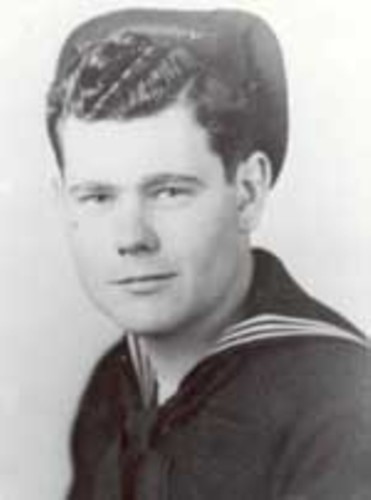  
 
 
 
 
 |
||
| patches + more | ||
  |
||
|
|
seaforces.org
|
USN ships
start page | |